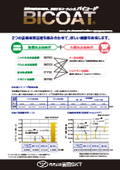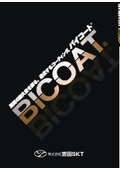We will introduce the main materials used for molds, as well as surface treatments and case studies that can solve molding troubles.
The materials used for molds are durable materials such as metals and plastics. The selection of materials for molds is determined by factors such as the shape of the product, the number of products to be mass-produced, the production process, and the types of materials used. Generally, for metals, the following types are available: 【Types of Mold Materials】 - Steel: It has high wear resistance, corrosion resistance, heat resistance, and strength. Examples include P20, S136, and NAK80. - Aluminum Alloy: Lightweight and highly heat-resistant, it may be used in processes such as injection molding. - Copper Alloy: It has high conductivity and excellent thermal conductivity. An example is beryllium copper. - Magnesium Alloy: Lightweight, strong, and has excellent thermal conductivity. It may be used in automotive parts. - Tungsten Alloy: It has high hardness and is suitable for use at high temperatures. It may be used in injection molding molds. The materials used for molds directly affect the quality of the products and production efficiency, so it is important to select appropriate materials and surface treatments according to the properties of the materials. Do you have any concerns regarding surface treatment for molds?
Inquire About This Product
Related Videos
basic information
<Molding Equipment> - Mold damage - Mold dimensional accuracy - Coating peeling Commonly used surface treatments for molds include: 1. Plating treatment 2. Anodizing treatment 3. Fluororesin coating 4. DLC coating However, conventional surface treatments may not meet the desired functions such as strength and release properties, and improvements may not be achieved as expected. The technology that realizes the combination of "strength + anti-adhesion and slip properties comparable to fluororesin coating" is our original surface treatment 'BICOAT'. [Main Types of BICOAT(R)] ■ NYK-01 - Surface treatment combining nickel-based metal coating with fluororesin ■ NOO-01 - Surface treatment combining chromium-based metal coating with fluororesin ■ TYS-03 - Surface treatment that fuses fluororesin into a chemical film reacted with iron ions in the metal substrate ■ NYN-11 - Surface treatment combining alumina coating with fluororesin *For more details, please refer to the PDF document or feel free to contact us.
Price range
Delivery Time
Applications/Examples of results
【Applications】 ■ Injection molding molds for rubber ■ Molds requiring dimensional accuracy for release ■ Parts requiring wear resistance and slip ■ Parts requiring wear resistance and non-stick properties ■ Release of adhesives and sticky materials *For more details, please refer to the PDF document or feel free to contact us.
catalog(4)
Download All Catalogs
Company information
To maximize the performance of manufacturing equipment and machine parts, Yoshida SKT derives the "optimal solution" tailored to our customers from hundreds of surface treatment technologies. - Decreased productivity due to adhesive troubles - Instability in product quality due to friction - Early deterioration of equipment due to corrosion We respond to these challenges in the manufacturing field with our extensive track record and reliable technical expertise. In 1963, we began fluoropolymer processing. In 1968, we signed a licensing agreement with DuPont (now Chemours), supporting manufacturing innovations for over 2,000 customers across various industries, from automotive to medical and aerospace. Furthermore, in 2024, we are focusing on the development of next-generation products, such as PFAS-free coatings, contributing to the advancement of sustainable manufacturing. With a three-base system in Nagoya, Tokyo, and Yamaguchi, we flexibly respond to both mass production and custom orders. Our consistent quality management system ensures that we deliver reliable quality. For solving challenges in the manufacturing field, trust the surface treatment experts at Yoshida SKT.






![[Construction Case] Improvement of Punch Lifespan](https://image.mono.ipros.com/public/product/image/e6f/2000798260/IPROS91843729268665907320.png?w=280&h=280)








